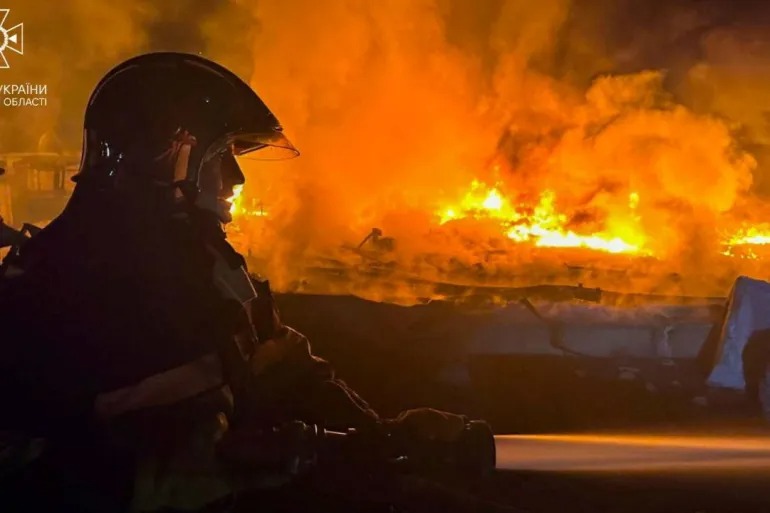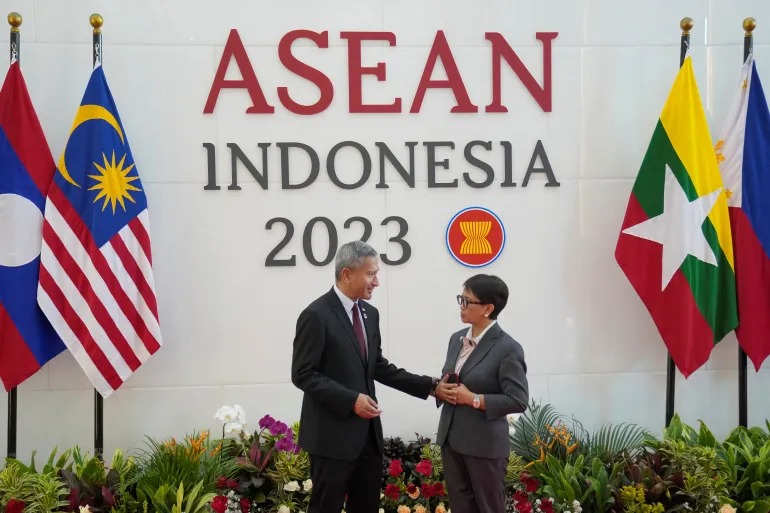In a bid to revamp its military strategy and combat allegations of corruption, Ukrainian President Volodymyr Zelenskyy announced the dismissal of Defense Minister Oleksii Reznikov on Monday, September 4, 2023. This development marks a significant turn of events in the ongoing Russia-Ukraine conflict, now entering its 558th day. As the situation on the ground continues to evolve, several critical events have unfolded across various fronts.
Escalating Tensions in Southern Ukraine
As Ukraine remains entrenched in the conflict, the southern Odesa region witnessed intense confrontations on Monday. Ukrainian forces reported the successful destruction of 22 Russian drones, signifying their commitment to defending their territorial integrity. Meanwhile, Moscow claimed responsibility for an attack on “fuel storage facilities” in the Danube port of Reni, situated on the border with Romania. The Ukrainian Air Force reported multiple waves of Russian attacks, leading to injuries in the Danube area.
Romania’s Ministry of National Defense swiftly condemned these attacks, emphasizing their unjustifiability and violation of international humanitarian law. The situation in southern Ukraine underscores the ongoing volatility in the region and the urgent need for diplomatic resolutions.
International Diplomatic Efforts
Diplomacy took center stage on the 558th day of the Russia-Ukraine conflict, with several key developments in play. In the southern Russian city of Sochi, Turkish President Recep Tayyip Erdogan held a crucial meeting with Russia’s Vladimir Putin. The focus of the discussions revolved around the Black Sea grain deal, abandoned by Moscow in July. Turkey, along with the United Nations, aims to rekindle the agreement, which facilitates the safe export of Ukrainian grain from Black Sea ports.
Meanwhile, President Zelenskyy engaged in discussions with French President Emmanuel Macron regarding the “functioning” of a sea corridor established by Kyiv to ensure the safe navigation of ships, particularly after Moscow’s withdrawal from the Black Sea deal. Reports indicate that Ukraine has successfully facilitated the passage of four more ships through its temporary maritime corridor in the Black Sea. These diplomatic initiatives strive to maintain stability in the region while offering respite to Ukraine’s vital maritime trade.
International Concerns and Weaponry
Amid the ongoing conflict, concerns have arisen regarding Russia’s recruitment strategies. Dmitry Medvedev, Russia’s former president and current deputy chair of the Security Council, revealed that approximately 280,000 individuals had enlisted for professional service with the Russian military since January 1, 2023. Additionally, the United Kingdom’s military intelligence disclosed alarming information that Moscow was recruiting from a pool of over 6 million migrants from Central Asia and neighboring countries residing in Russia, bolstering its war efforts in Ukraine. This recruitment strategy, exploiting foreign nationals, poses significant challenges to the international community’s response to the conflict.
Furthermore, the International Olympic Committee (IOC) announced that Russian and Belarusian athletes would not participate in the upcoming Asian Games in China, commencing on September 23. The IOC cited technical grounds for this decision, signaling the broad ramifications of the ongoing tensions between Russia, Ukraine, and other nations.
In a separate development, South African President Cyril Ramaphosa addressed allegations from the United States concerning a Russian ship’s alleged transport of weapons from South Africa. Ramaphosa stated that an inquiry had found no evidence to substantiate these claims, emphasizing that “none of the allegations made about the supply of weapons to Russia have been proven to be true.”
Amid these developments, Ukraine’s Defense Minister Oleksii Reznikov announced plans to intensify drone production, signaling a forthcoming surge in various types of Ukrainian drones for military use. Reznikov’s statement reflects Ukraine’s determination to strengthen its defense capabilities in response to the protracted conflict.
As the Russia-Ukraine conflict enters its 558th day, these events underscore the complex dynamics at play, involving diplomacy, international concerns, and evolving military strategies, with global implications that continue to shape the course of this ongoing crisis.
















